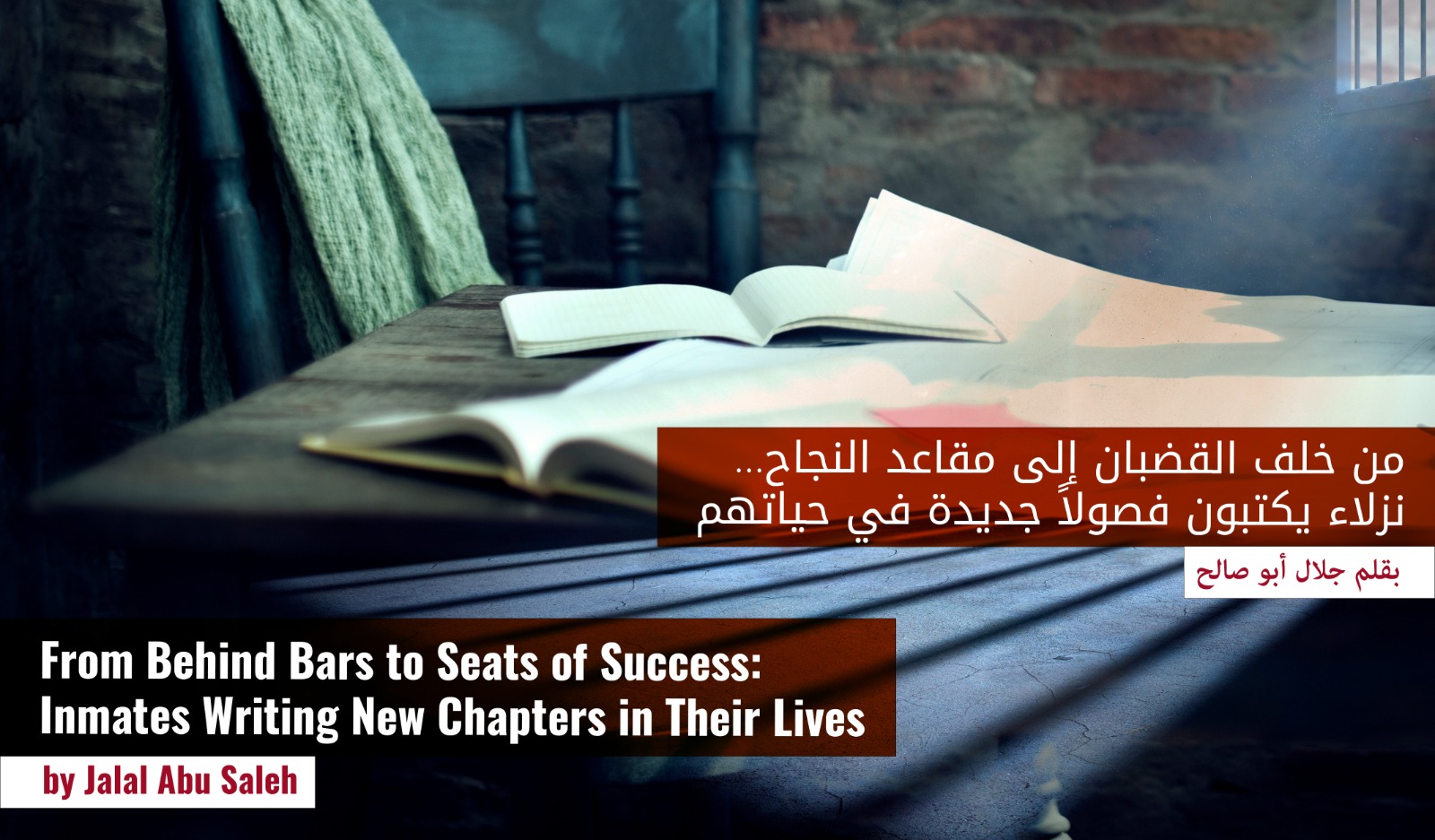A blog by Jalal Abu Saleh
“I passed the Tawjihi exams, and I dream of continuing my university studies. Education has given me the faith that I can change and build a better future,” says Ahmad (a pseudonym), reflecting on his experience inside one of Jordan’s correctional and rehabilitation centers. His story is similar to dozens of others this year, proving that learning and determination can open doors—even from behind bars.
In the 2025 General Secondary Education Certificate (Tawjihi) exams, 52 inmates sat across academic and vocational tracks. Of these, 31 passed—a success rate of around 60%, nearly matching the national average. One inmate even scored 85.7%, a strong testament to the effectiveness of the educational programs offered inside the centers.
This is not a new development. In 2024, 27 inmates succeeded, and in 2023, 25 out of 56 passed. The consistent results show that education is not a secondary activity inside the centers but a cornerstone of Jordan’s reform vision.
Success Stories That Inspire and Break Stigma
Sami (a pseudonym) once believed that entering a correctional center meant the end of his future. Through education, he discovered a “second chance,” committed to daily study, and succeeded.
Ghassan rediscovered books after years of disconnect, finding in Tawjihi a turning point that restored his self-respect.
For Ziad, education became the way out of isolation, leading him to a remarkable success that has now opened the doors of university.
Simple as they may seem, these stories carry a powerful message for society: an inmate is not merely someone serving a sentence, but a person capable of rebuilding their life if given the opportunity.
A Progressive Reform Vision: The Jordanian Model
Jordan’s 17 correctional and rehabilitation centers follow a human-centered approach focused on reform rather than punishment. This vision stems from the 2004 Correctional Centers Law, which replaced the old Prison Law. Their programs include:
- Academic education: from literacy classes to university studies, in partnership with the Ministry of Education and local universities.
- Vocational training: in carpentry, tailoring, electricity, and handicrafts.
- Psychosocial support: including addiction treatment, counseling, sports, and arts.
- Aftercare: follow-up with released inmates to reduce recidivism and promote social stability.
This integrated approach makes Jordan a unique example in the Arab region, where many detention centers still prioritize punishment and deterrence over reform and rehabilitation—leading to higher rates of repeat offenses.
Regional Comparison: Jordan as a Model Amid Challenges
Regional estimates suggest recidivism rates in the Arab world range from 35% to 50%, largely due to weak education and rehabilitation programs and a lack of aftercare. Jordan’s approach seeks to break this cycle by treating education as a tool for reintegration, not just an image-building exercise.
The success of Tawjihi students inside Jordan’s centers—whose pass rates are close to the national average—highlights the model’s effectiveness and places Jordan ahead of many neighboring countries still without such initiatives.
The Need for Partnerships and Sustainable Support
Despite these successes, Jordan’s model faces challenges, including limited funding, a shortage of qualified staff, and the absence of a comprehensive national framework for aftercare. Experts in justice and human rights stress the need for:
- Stronger political and legislative commitment to sustain these programs.
- Partnerships with the private sector to secure job opportunities for released inmates.
- Curricula tailored to inmates’ different learning levels.
- Greater integration of technology through computer labs and e-learning.
Turning Success into a Regional Opportunity
The achievement of 31 inmates this year is not just a Jordanian milestone—it is a regional signal. Education inside correctional centers can be a powerful tool to fight poverty, reduce reoffending, and strengthen social stability.
Civil society organizations, such as the Arab Renaissance for Democracy and Development (ARDD), continue to advocate for expanding this approach regionally, making it part of a broader human rights and sustainable development strategy.
A New Beginning That Deserves to Be Shared
The stories of Ahmad, Sami, Ghassan, and Ziad show that success is possible even under the harshest conditions. The real challenge now lies in expanding this Jordanian experience nationally and regionally, turning correctional centers into platforms for rebuilding lives rather than just places of punishment.
As one successful inmate put it: “Education opened a door to a future I never imagined I could have.”



